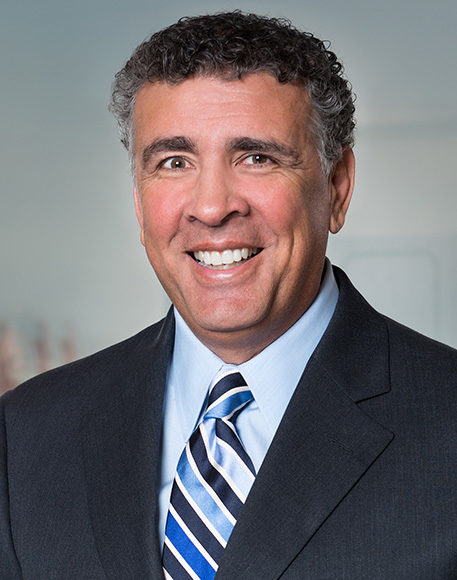The Impact of Staffing Levels on Nursing Home Care Quality
 Nursing homes across the country must comply with federal and state regulations. These regulations help protect parents, grandparents, spouses, and other loved ones from abuse and neglect. Nursing homes in California, Arizona, Kentucky, Louisiana, and other states that violate these regulations may be liable for any injuries or deaths they cause.
Nursing homes across the country must comply with federal and state regulations. These regulations help protect parents, grandparents, spouses, and other loved ones from abuse and neglect. Nursing homes in California, Arizona, Kentucky, Louisiana, and other states that violate these regulations may be liable for any injuries or deaths they cause.
Most nursing homes are required to comply with the regulations of the US Centers for Medicare & Medicaid Services (CMS) – because most nursing homes bill CMS for the services the homes provide. According to CMS, on April 22, 2024, a new final rule was introduced: the Minimum Staffing Standards for Long-Term Care (LTC) Facilities and Medicaid Institutional Payment Transparency Reporting final rule.
The rule provides new comprehensive minimum nurse staffing requirements. The purpose of the rule is to “significantly reduce the risk of residents receiving unsafe and low-quality care within Long-Term Care (LTC) facilities.” CMS states that the new minimum nurse staffing standards are national baseline standards.
CMS reports that it:
Is finalizing a total nurse staffing standard of 3.48 hours per resident day (HPRD) [of direct nursing care to residents], which must include at least 0.55 HPRD of direct registered nurse (RN) care and 2.45 HPRD of direct nurse aide care. Facilities may use any combination of nurse staff (RN, licensed practical nurse [LPN] and licensed vocational nurse [LVN], or nurse aide) to account for the additional 0.48 HPRD needed to comply with the total nurse staffing standard.”
According to Nursinghomes.com, “the higher the staff-to-resident ratio is, the higher the HPRD is likely to be.”
CMS is also finalizing the requirement that nursing homes have an RN onsite every hour of every day to provide skilled nursing care. CMS states that the new minimum staffing requirements are just minimums (a baseline). Individual nursing homes should assess whether higher nursing staffing requirements are necessary for their facility.
Why are staffing requirements at nursing homes important?
Each resident of a nursing home is entitled to individual care. The home should be able to address each resident’s physical, emotional, and cognitive needs. Most residents need help with their medications and meals. Many residents need help with bathing, grooming, bowel and bladder difficulties, movement so they don’t develop bedsores, and many other types of medical and social care.
Generally, more residents or fewer staff members increase the odds that a nursing home resident will suffer harm due to abuse or neglect. A nurse who is too busy to tend to a resident on time may not recognize the signs of a stroke (which may be fatal) or may fail to give a resident their medications. Being rushed can lead to mistakes. Understaffing can also lead to abuse as workers become frustrated or angry about providing care for each resident.
Adequate nursing home staff includes doctors, nurses, nutritionists, social workers, and other workers. Proper staffing means having enough professionals who have the necessary qualifications, experience, and credentials. Inadequate staffing can mean failing to recognize emergencies or being able to treat those emergencies.
The scope of understaffing in America’s nursing homes
The New York Times states in a July 2024 article that “An acute shortage of nurses and aides in the nation’s nearly 15,000 nursing homes is at the root of many of the most disturbing shortfalls in care for the 1.2 million Americans who live in them, including many of the nation’s frailest old people.”
Some of the injuries that residents suffer due to inadequate staffing levels include:
- Serious falls
- Bedsores
- Lying in one’s own feces
- Injuries due to the use of chemical restraints
While some states like California have high minimum care areas for each nursing home resident, the New York Times states that these laws aren’t enforced as strongly as they should be. The article references the CMS rule discussed above.
Some of the reasons that nursing homes are struggling to find competent care are that the pay is generally low (about $19 an hour on average for nursing assistants) and COVID-19 which struck nursing homes pretty harshly. Half of all nursing home employees leave their jobs each year.
While low pay and burnout are problems, the New York Times reports that “a growing body of research and court evidence shows that owners and investors often extract hefty profits that could be used for care.” At Garcia & Coman, we believe that nursing homes that prioritize their profits over your loved one’s safety and happiness should be held accountable when understaffing causes harm to the person you love.
During inspections since 2021, state regulators cited a third of California homes — more than 400 of them — for inadequate staffing. Regulators also granted waivers to 236 homes that said workforce shortages prevented them from recruiting enough nurse aides to meet the state minimum, exempting them from fines as high as $50,000.
According to the District of Columbia’s long-term care ombudsman, many nursing home owners can afford to pay higher wages. The ombudsman said:
“There’s no staffing shortage — there’s a shortage of good paying jobs,” he said. “I’ve been doing this since 1984 and they’ve been going broke all the time. If it really is that bad of an investment, there wouldn’t be any nursing homes left.”
What can family members do when there are signs of understaffing at a loved one’s nursing home?
Some of the signs understaffing is affecting your loved one include:
- Weight loss that can’t be explained
- A lack of personal hygiene
- Medical disorders that aren’t treated such as when patients don’t receive their medications in a timely manner
- Withdrawal, anxiety, and depression
- Bedsores/pressure ulcers
- The use of physical or chemical restraints
If you suspect that your relative is suffering from abuse or neglect, Garcia & Coman is ready to help. We’ve been strong advocates for nursing home residents and the elderly for over 30 years. Our lawyers have obtained more than $3 billion for our clients. To schedule a free consultation, call our office or fill out our contact form. We have offices throughout the country including in Los Angeles, Phoenix, Long Beach, Louisville, and New Orleans. We handle nursing home abuse and neglect claims on a contingency fee basis.

Stephen M. Garcia represents victims of elder and nursing home abuse and is known as one of the leading civil litigators in the country. He is Senior Partner at Garcia & Coman, where the firm’s practice is focused on elder abuse, nursing home abuse, and wrongful death of the elderly.
Find out more about Stephen M. Garcia

